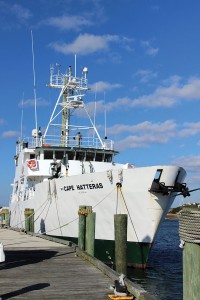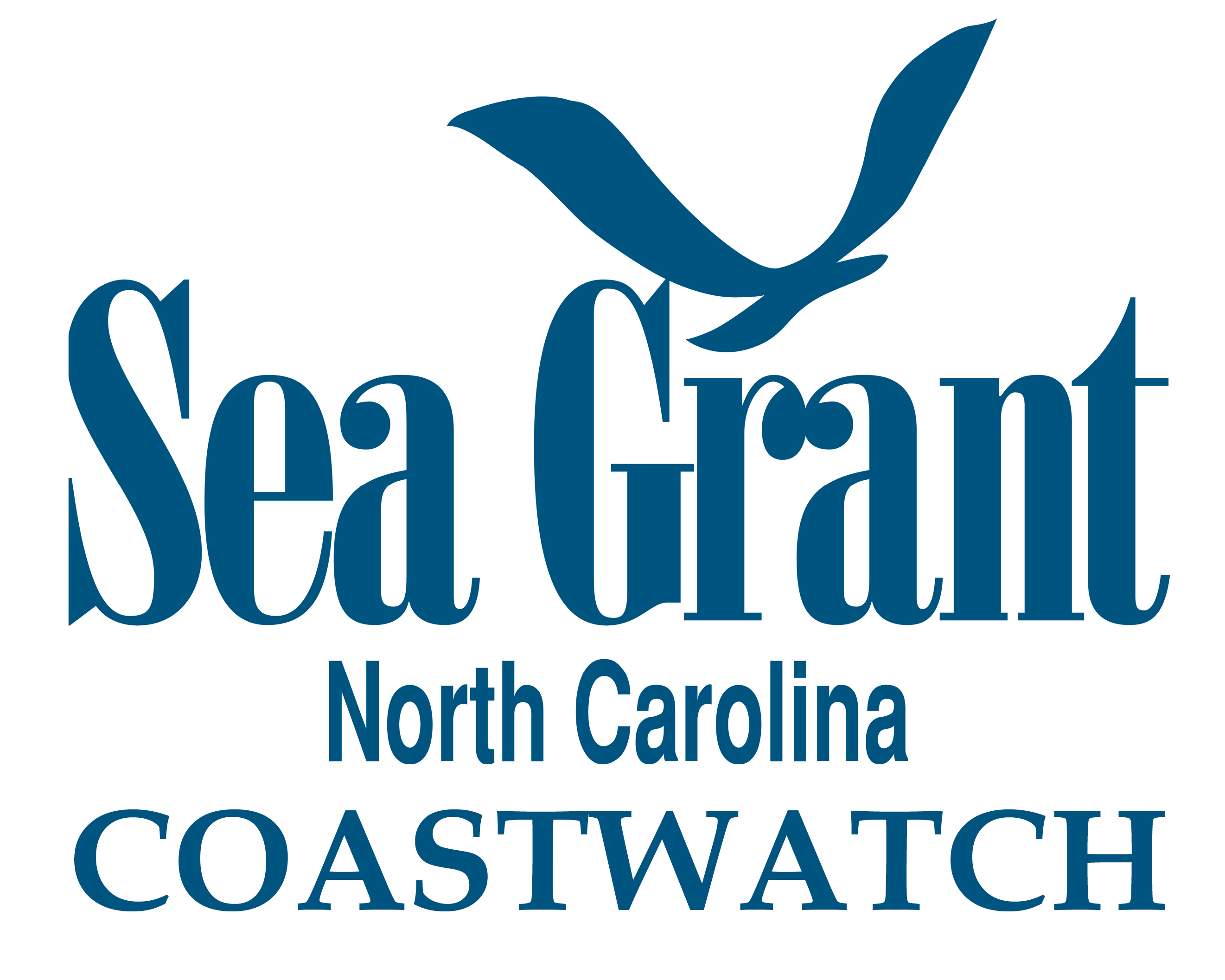By RHETT REGISTER and E-CHING LEE
Marine technicians are an integral part of coastal and ocean research, manning the engines and steering the boats that take scientists out to sea. They deploy, operate, recover and fix equipment, including delicate scientific instrumentation, under high-stress, time-limited conditions.
Now the Marine Technology, or MarTech, program at Cape Fear Community College that trains these specialists is getting a shot in the arm in the form of the R/V Cape Hatteras — a new, bigger research vessel to replace their aging instruction vessel.
Enrolled students master oceanography, GIS, boat handling and other related skills. “The core of their training is the 32 days over the course of the two-year program that they spend on the ocean,” says David Hardin, department spokesperson.

Cape Hatteras has a cruising speed of 10 knots and a full speed of 12 knots. Photo by Vanda Lewis.
This is the first time that the nearly 50-year-old program has owned a vessel that was built and designed for research. The Cape Hatteras will give students more room and new, industry-standard equipment on which to learn their trade, though proposed cuts in program funding may limit its use.
Graduates work all over the world in fields ranging from oceanography and marine biology to geophysical exploration and fisheries. Closer to home, they have helped recover the anchor from Queen Anne’s Revenge, Blackbeard’s ship. Almost every governmental agency, company, research institution and university in the state that works on the water employs MarTech graduates.
The Cape Hatteras didn’t have to travel far to get to its new home. The 135-foot vessel, previously owned by the National Science Foundation and used and managed by the Duke/University of North Carolina Oceanographic Consortium, was docked at Pivers Island in Carteret County. It was built in 1981 and remodeled in 2003.
“The R/V Cape Hatteras was a good work platform for many researchers in North Carolina,” says Roger Rulifson, a fisheries biologist at East Carolina University. He made trips on the vessel, as did some of his graduate students. The N.C. Fishery Resource Grant Program, run by North Carolina Sea Grant, has funded several of his spiny dogfish tagging projects.
Earlier this year, the NSF decided to retire the ship. The sale of the vessel might affect marine scientists in the state and their ability to conduct deepwater research.
“I do believe the choices for available sampling platforms are definitely more limited,” Rulifson notes. He sees the potential for increased scheduling conflicts, with multiple scientists wanting time on a smaller fleet of research vessels.
However, he is pleased that the Cape Hatteras was sold to Cape Fear Community College. “I am hopeful that ECU will continue to be able to use her as a sampling platform, but that remains to be determined.”
This article was published in the Spring 2013 issue of Coastwatch.
For contact information and reprint requests, visit ncseagrant.ncsu.edu/coastwatch/contact/.
